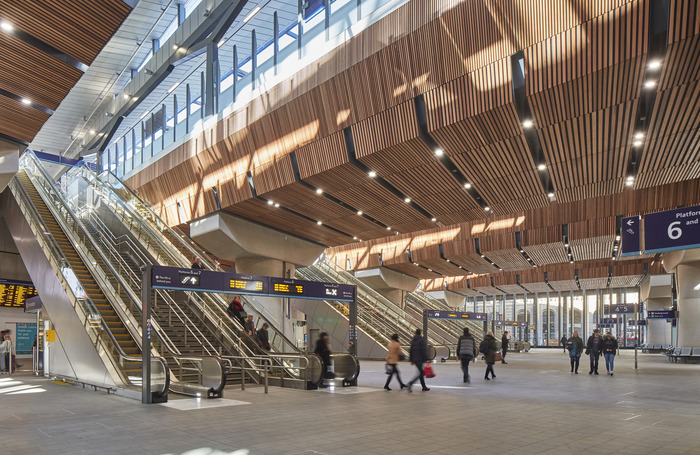Architects tend to invest their practice management efforts in projects and personnel while often treating financial planning as a secondary consideration. That is, until its importance becomes apparent, more likely in times of political and economic uncertainty when a clear grasp of business finance emerges as essential.
Brexit continues to be the big cause of uncertainty for UK practices, of course, and the lack of clarity remains the same now as it was 18 months ago, following the referendum.

Neil Boyde, Chief Financial Officer at Grimshaw, and speaker at the final instalment of the RIBA Future Leaders trilogy on Business and Innovation on 12 July, will be reminding the audience that architects’ practices need to be run as any other business from a finance point of view. With that in mind, cash is more important to business health and survival than anything else.
At Grimshaw, Boyde ensures that a cash buffer of two to three months operating costs is always maintained, either in the bank or as a banking facility. Rolling revenue and cash flow forecasts should be a constant focus for anyone with responsibility for practice finances. This is not so much about making money as about providing operational stability.
‘Grimshaw is not finance driven, nor is it driven by profit and growth targets. It’s all about the projects. My job is to provide the financial stability [that enable] the business to [focus on projects],’ as Boyde puts it.
It’s not just recessions that can cause problems. Growth drives the need for a greater cash buffer. Boyde points out that one of the scenarios that can throw up an unanticipated finance challenge is a sudden run of success. Earlier this year Grimshaw picked up two major UK rail commissions almost simultaneously: the HS2 station for Birmingham as well as a new entrance and interchange expansion for London Euston, which means that Grimshaw will be recruiting.
‘Architects get very excited about projects. They acquire a momentum of their own and can become the driver in people’s lives, but it is absolutely fundamental that they understand the impact of a project on the finances of the business and the implications, from a stability point of view, on entering into contracts,’ says Boyde.
Boyde’s greatest concern around Brexit relates to recruitment rather than finance. UK government decisions on the status of non-UK staff will have an impact on more than half of Grimshaw’s London office.
On the other hand, the practice’s global reach means that 70-75% of work should not be affected by Brexit at all. Smaller practices do not have a dedicated finance person, of course, and Boyde suspects it would be counterproductive if they did.
‘But finance absolutely does need constant attention,’ he argues. ‘Every practice needs a figure who can understand and manage the overlap between financial and operational decision making.’
Thanks to Neil Boyde, Chief Financial Officer, Grimshaw Architects.
Text by Neal Morris. This is a Professional Feature edited by the RIBA Practice team. Send us your feedback and ideas
RIBA Core Curriculum Topic: Business, clients and services.
As part of the flexible RIBA CPD programme, Professional Features count as microlearning. See further information on the updated RIBA CPD Core Curriculum and on fulfilling your CPD requirements as an RIBA Chartered Member.
Posted on 28 June 2018.









